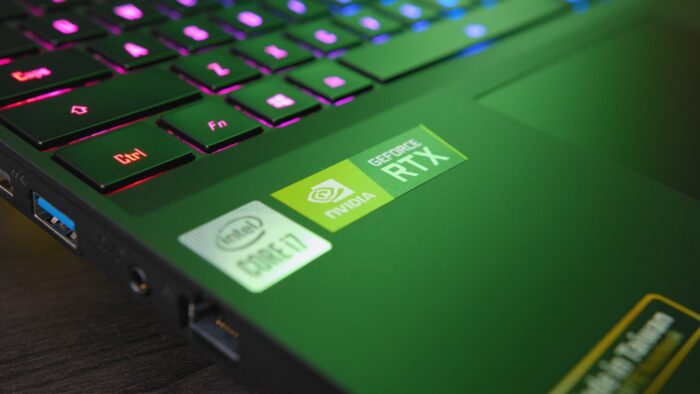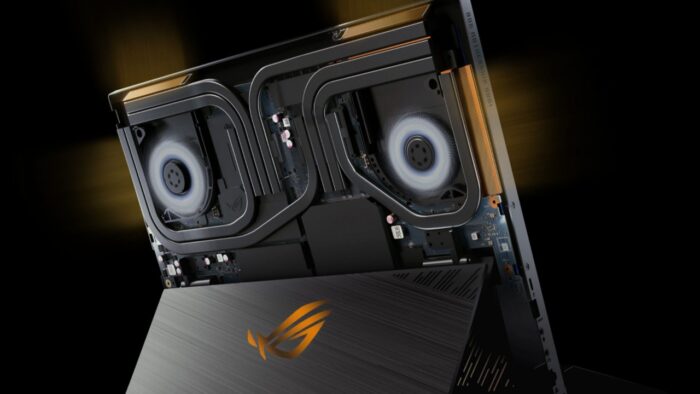
Over 300 million personal computers were shipped out in 2021. Like it or not, most of us spend a lot of time on different screens, and laptops are one of the most common options.
But, if you’re looking for an upgrade, you might be unsure what things you should be looking at while you shop.
We can help. Let’s go through the top things you need to consider when buying a laptop.

1. What You Need It For
Think about the reason you’re looking to buy a new laptop before you start shopping. Many people buy laptops for everyday tasks like web browsing, email, word processing, and multimedia consumption.
If that’s you, a laptop with decent performance, a comfortable keyboard, and a good display would be suitable.
Professionals who need a laptop for work often prioritize factors like processing power, multitasking capability, and software compatibility.
Consider the specific software or applications you will be using, as some professions require more demanding hardware specifications. Additionally, connectivity options, such as ports for external displays or peripherals, may be important for certain work setups.
You might also need different security options to protect your sensitive data. In that case, you’ll want to look at laptops with CAC reader.
2. Cost
Different types of laptops can get expensive. And, the more you need your laptop to do, the more it will cost. Determine the maximum amount you’re willing to spend on a laptop. Having a budget in mind helps narrow down your options and prevents overspending.
If you’re on a tight budget, you might consider refurbished or used laptop options. These can offer significant cost savings while still providing decent performance.
However, ensure that you buy from reputable sellers, check the warranty terms, and thoroughly inspect the condition of the laptop before purchasing.
Keep an eye out for seasonal sales, promotional offers, and discounts, as they can help you get a better deal. Black Friday, Cyber Monday, and back-to-school periods are known for significant discounts and deals on electronics.

3. Size
Consider the laptop’s size and weight based on your portability needs. Laptops are available in various sizes.
If you frequently travel or need to carry your laptop around, a smaller and more lightweight option would be suitable. Laptops in the 11 to 14-inch range are generally considered more portable and easier to carry in backpacks or bags. They are ideal for students, frequent travelers, and individuals who work on the go.
Consider the comfort and ergonomics of the laptop size. If you have larger hands or prefer a more spacious keyboard, a laptop with a larger form factor may be more comfortable for typing. Additionally, larger laptops tend to have room for larger touchpads, which can enhance usability.
If you plan to use your laptop primarily for media consumption, such as watching movies or streaming videos, a larger display can enhance the viewing experience. A laptop with a larger screen will offer a more immersive visual experience, especially if it has a high-resolution display.
5. Think About Graphics
Laptops generally come with either integrated graphics or dedicated graphics cards. Integrated graphics are built into the processor and share system memory.
They are suitable for everyday tasks like web browsing, document editing, and multimedia consumption. They provide basic graphics performance but may struggle with graphically demanding applications or games.
If you plan to use the laptop for gaming, video editing, or other graphically intensive tasks, consider a laptop with a dedicated graphics card. Dedicated graphics cards have their own memory and processing power.
They offer significantly better performance for demanding applications, gaming, and multimedia tasks. If you plan to engage in graphically intensive activities, consider a laptop with a dedicated graphics card.

6. Keep The Power On
Determine how long the laptop’s battery can last on a single charge. Consider your typical usage patterns to determine the required battery life for your needs. If you primarily use your laptop for light tasks like web browsing and document editing, a laptop with around 6-8 hours of battery life may be sufficient.
However, if you frequently engage in resource-intensive tasks like gaming or video editing, you may need a laptop with a larger battery capacity or additional power-saving features.
Look for laptops with power-efficient components, as they can help prolong battery life. Additionally, choosing a laptop with an energy-efficient display panel (such as an LED-backlit display) and optimizing power settings can further enhance battery life.
7. General Performance
Evaluate the laptop’s performance capabilities. Key components to consider are the processor, random access memory, and storage. Choose a processor that matches your needs, ensuring it can handle your desired tasks.
Higher RAM capacity allows for smoother multitasking, and ample storage space ensures you have enough room for your files, applications, and media.
Adequate cooling is crucial to maintain optimal performance and prevent overheating. Look for laptops with efficient cooling systems, such as multiple fans, heat pipes, and ventilation. That’s especially true if you plan to engage in resource-intensive tasks.
Laptops with advanced cooling technologies can help ensure consistent performance. This helps prevent thermal throttling.
You should read reviews and check performance benchmarks for specific types of laptops. Professional reviews and benchmark tests can provide insights into real-world performance.

Buying a Laptop: Get Started Today
There’s a lot you need to watch out for when you’re buying a laptop. Keep these factors in mind, and you’ll be sure to find the perfect laptop for your needs.
Do you need more advice on technology and more? Scroll through a few of our other excellent posts on related topics.











